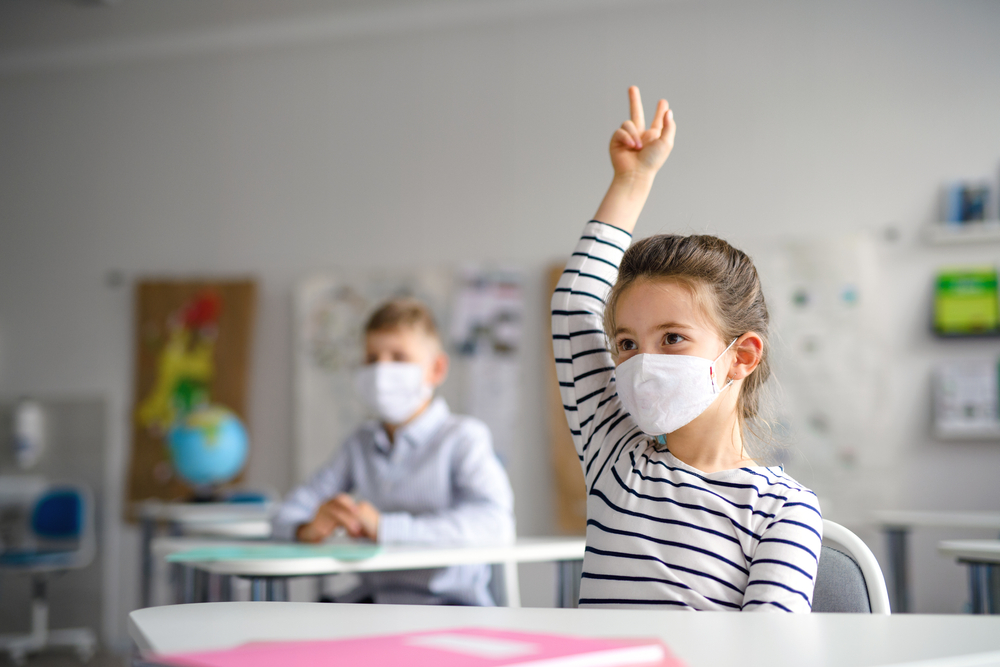Normal Knowledge Check worksheets activities for Ages 4-7
37 filtered results
-
From - To
Explore our engaging "Normal Knowledge Check" worksheets designed specifically for children ages 4-7. These activities cover essential skills in mathematics, literacy, and critical thinking, tailored to support early learners in their academic journey. Each worksheet provides a fun and interactive way for young learners to assess and reinforce what they've learned while promoting confidence in their abilities. With vibrant illustrations and age-appropriate exercises, our worksheets foster curiosity and a love for learning. Ideal for classrooms or at-home learning, these resources are perfect for parents and teachers aiming to enhance foundational knowledge in a playful and effective manner. Start your learning adventure today!
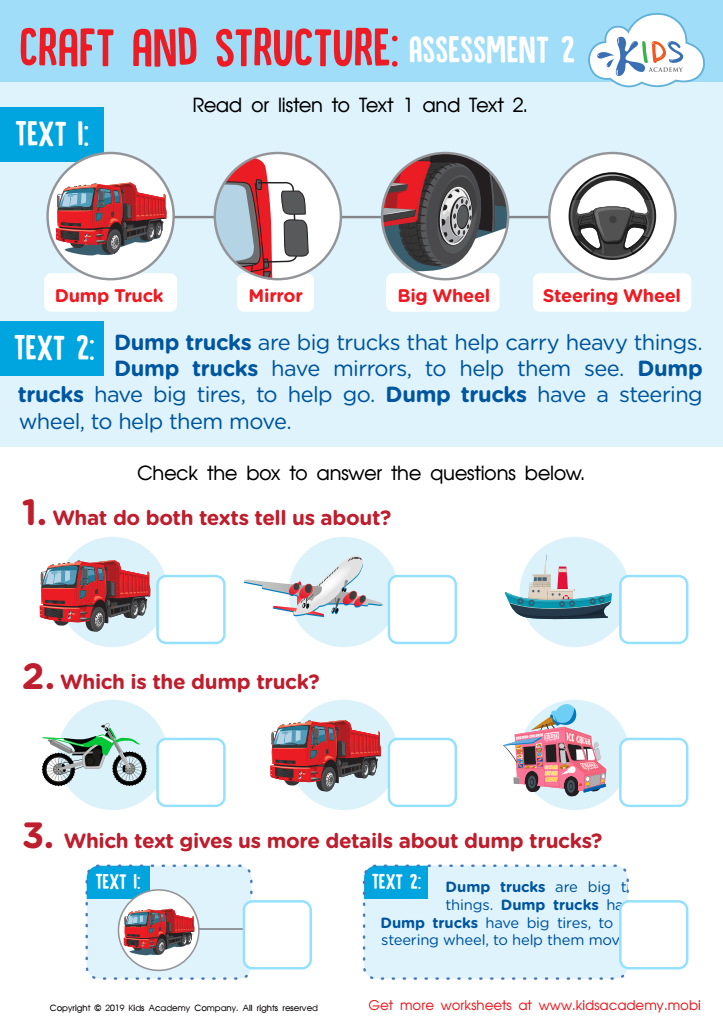

Craft and Structure: Assessment 2 Worksheet


Animals and Plants: Assessment 2 Worksheet


Animals and Plants: Assessment 1 Worksheet
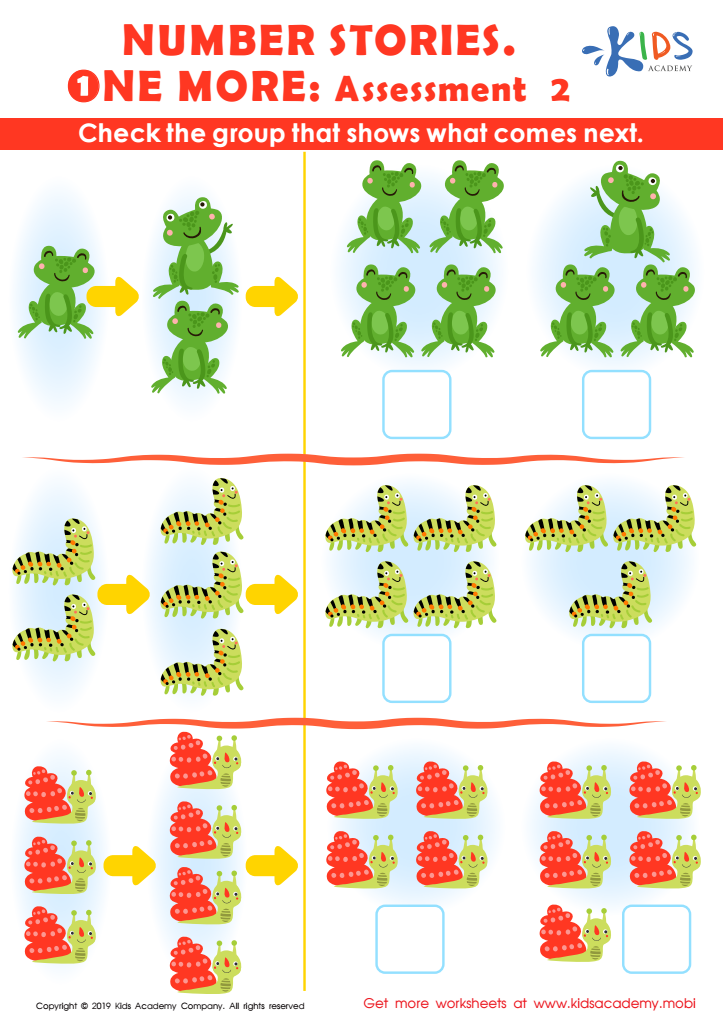

Number Stories One More – Assessment 2 Worksheet
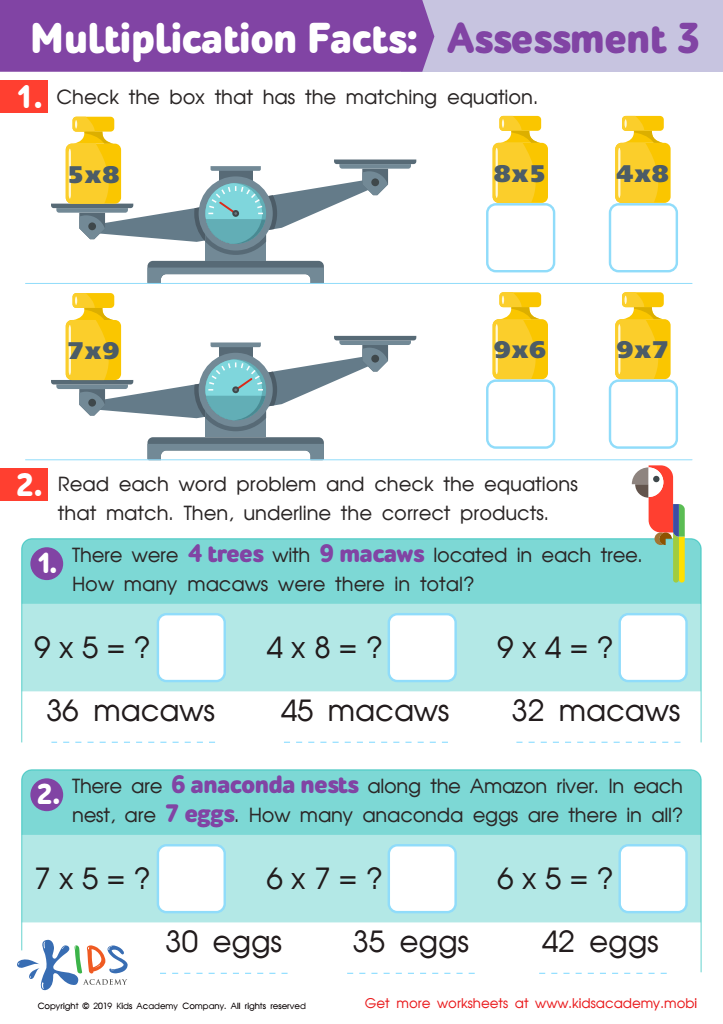

Multiplication Facts: Assessment 3 Worksheet


Assessment: First Thanksgiving Worksheet
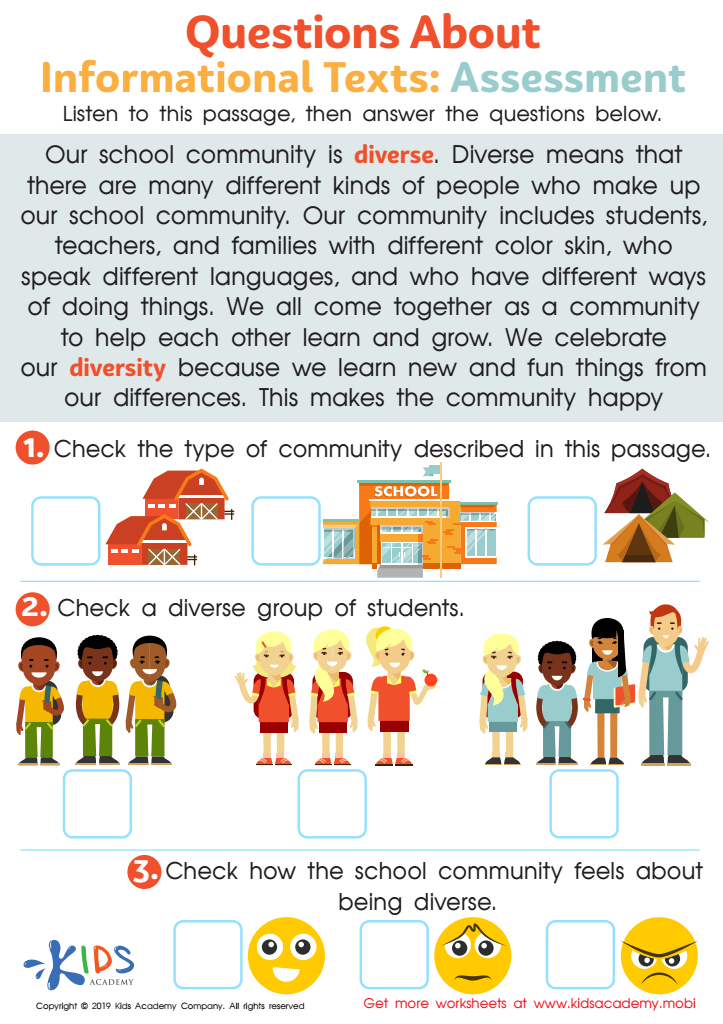

Questions About Informational Texts: Assessment 1 Worksheet
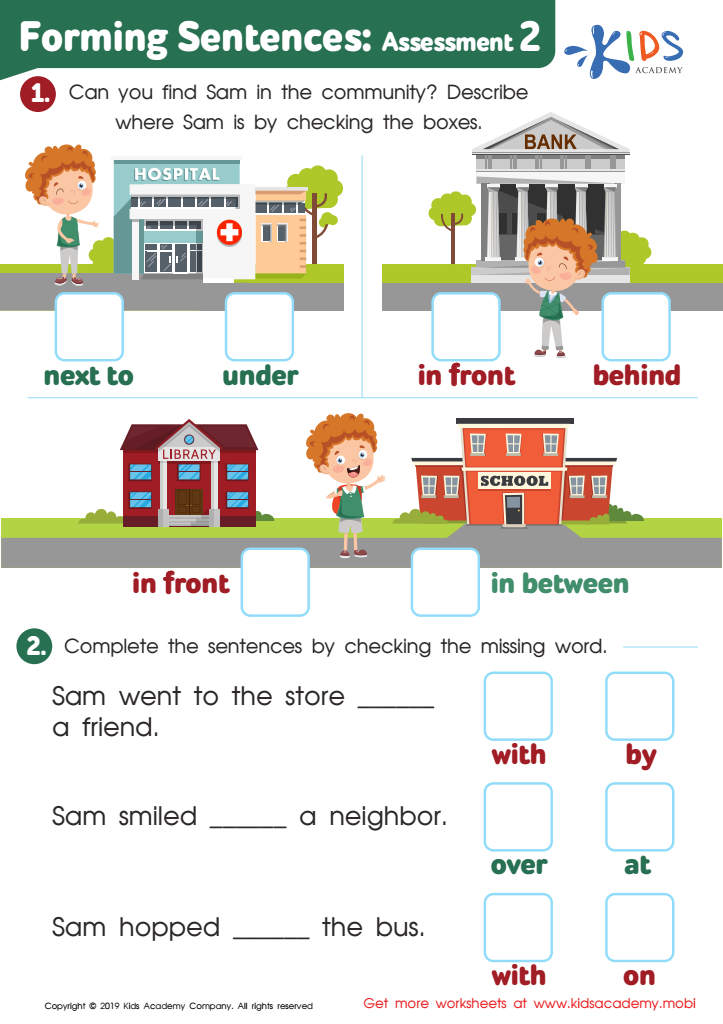

Forming Sentences: Assessment 2 Worksheet
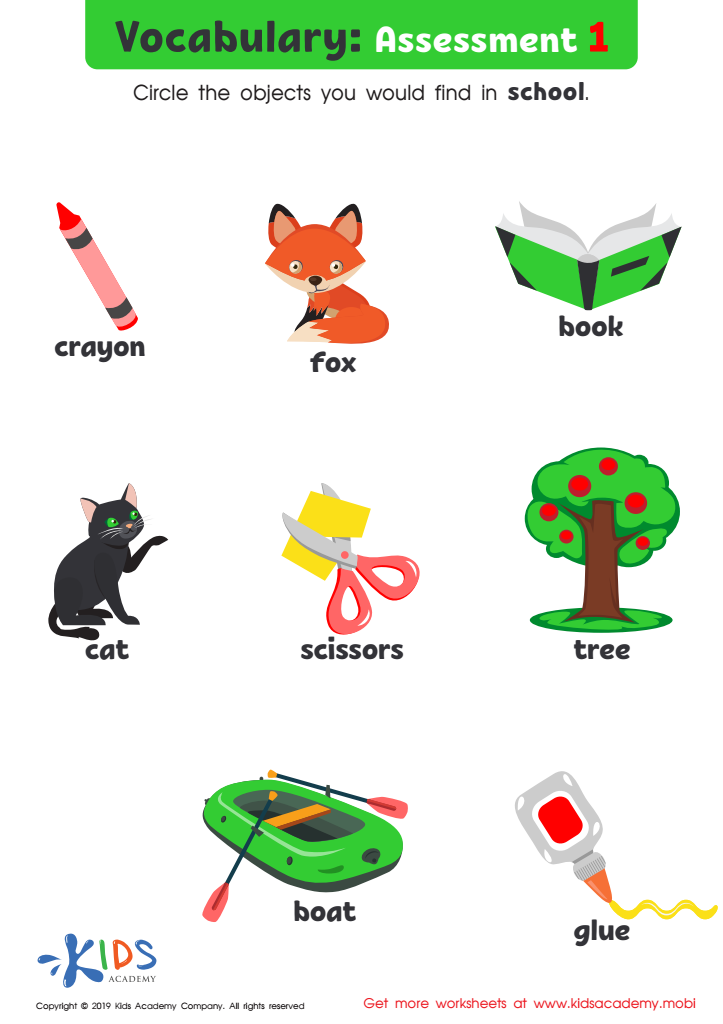

Vocabulary: Assessment 1 Worksheet


Word Problems: Assessment 2 Worksheet
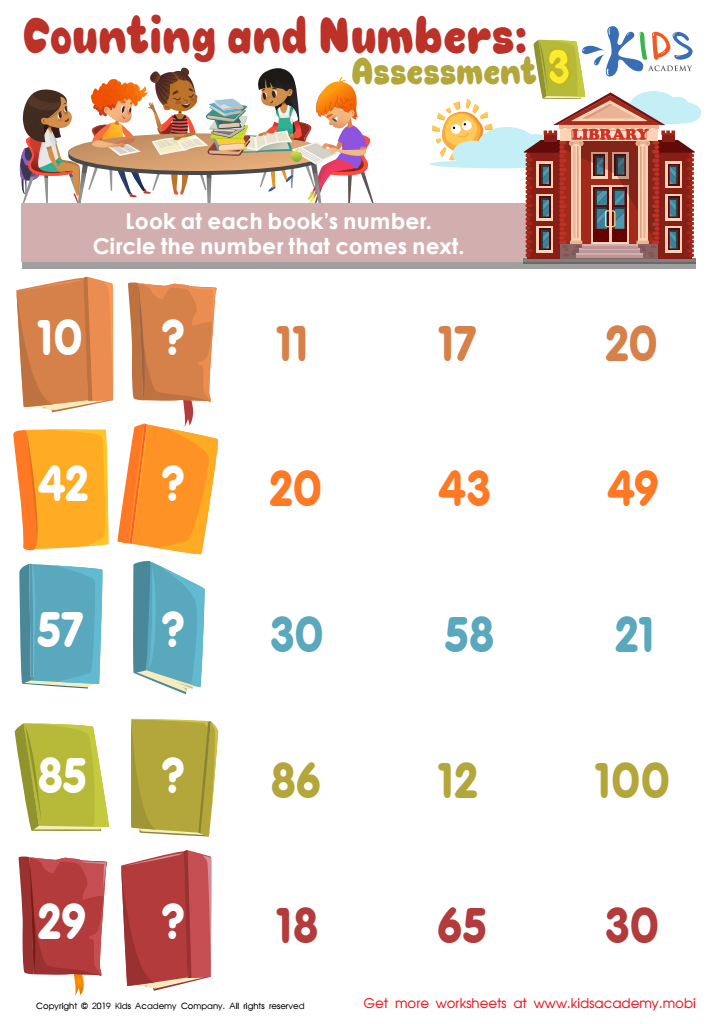

Counting and Numbers: Assessment Worksheet
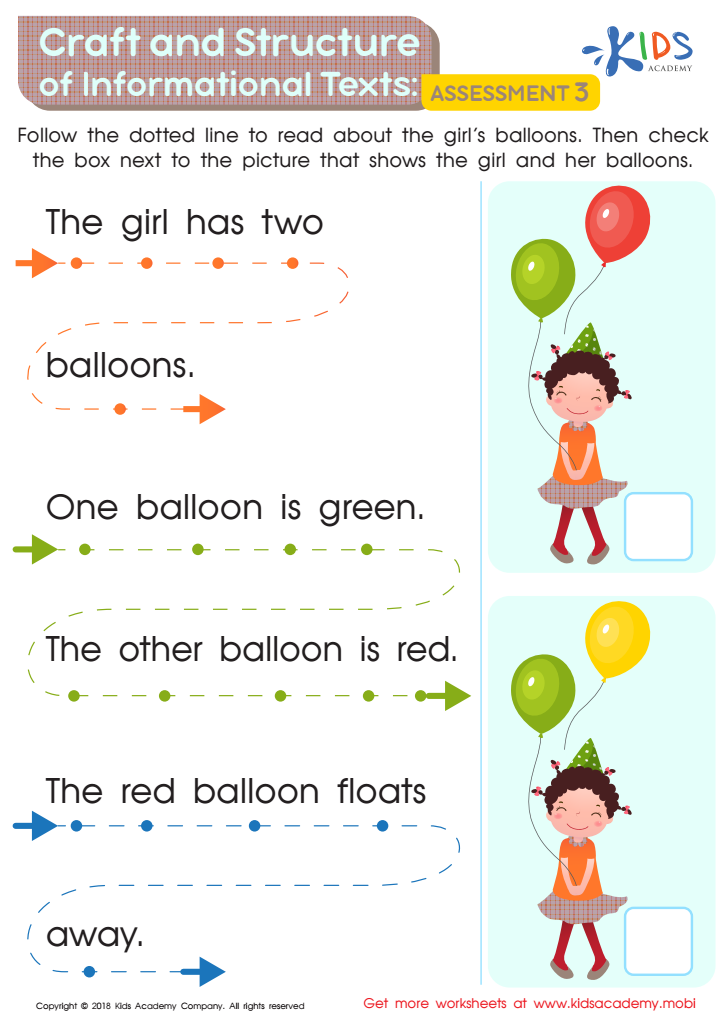

Craft and Structure of Informational Texts: Assessment 3 Worksheet
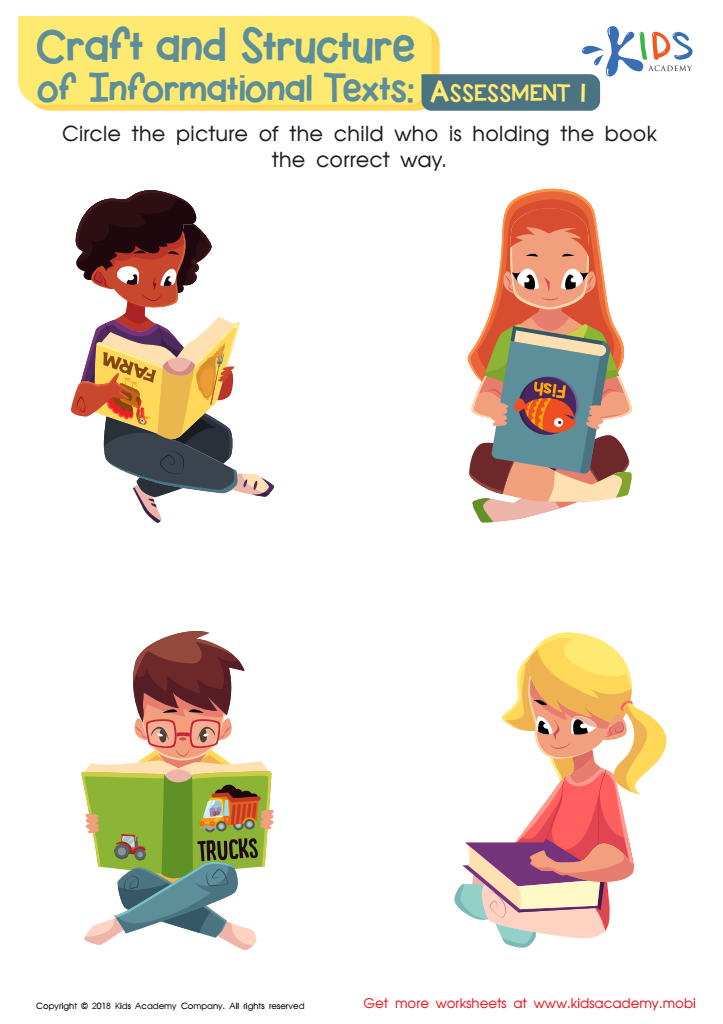

Craft and Structure of Informational Texts: Assessment 1 Worksheet
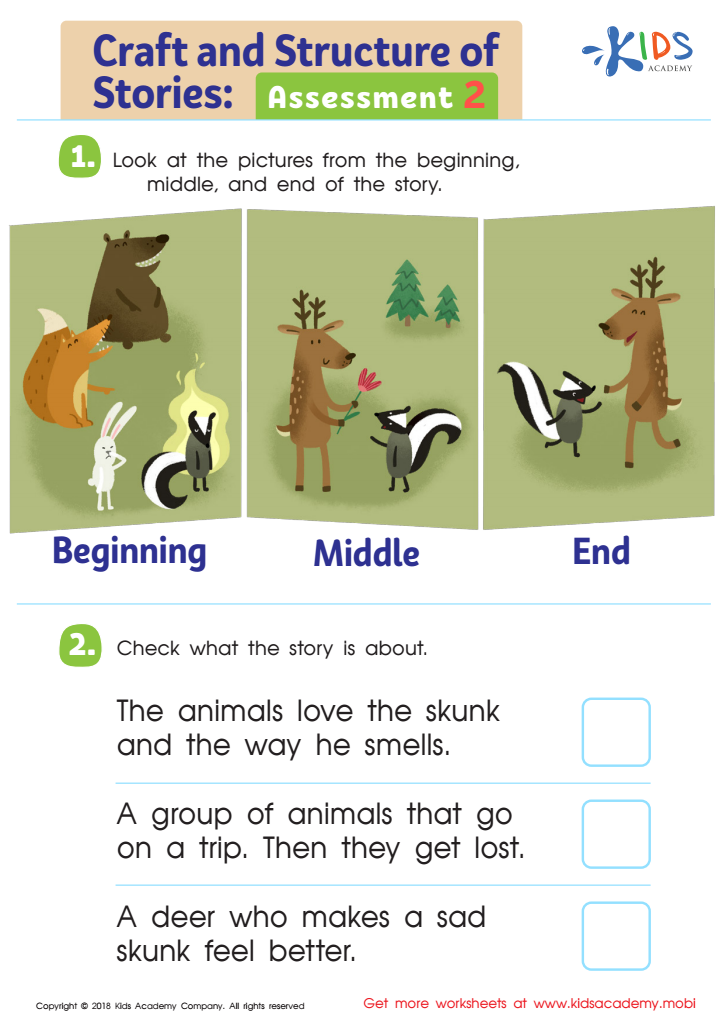

Craft and Structure of Stories: Assessment 2 Worksheet
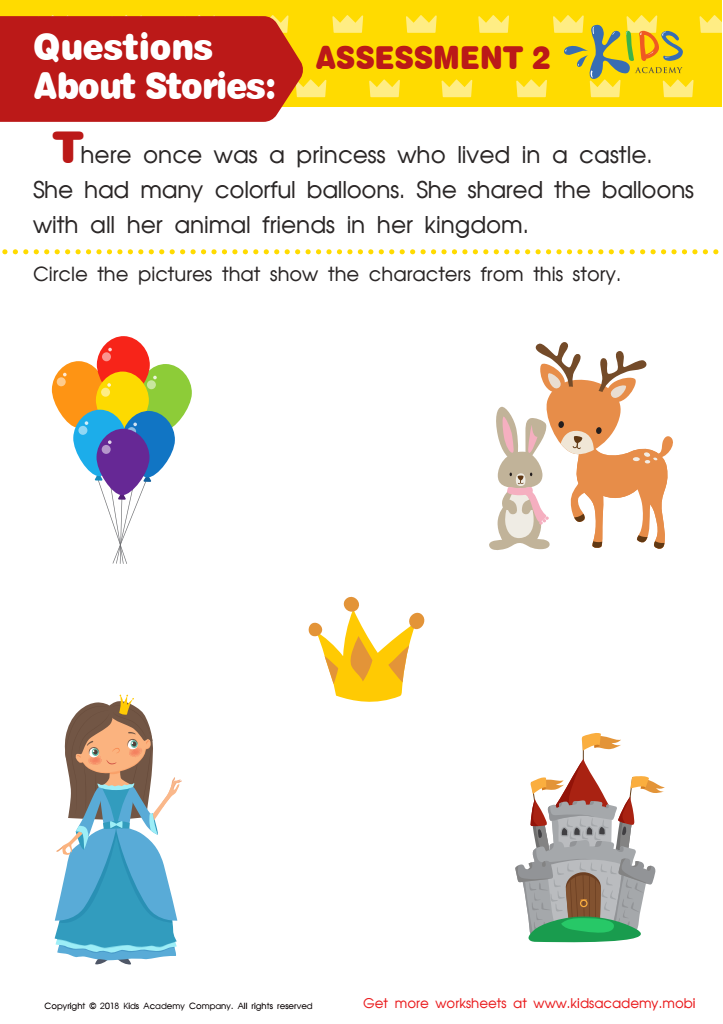

Questions About Stories: Assessment 2 Worksheet


Phonics and Word Recognition: Assessment 1 ELA Worksheet


Phonological Awareness: Assessment 1 Worksheet
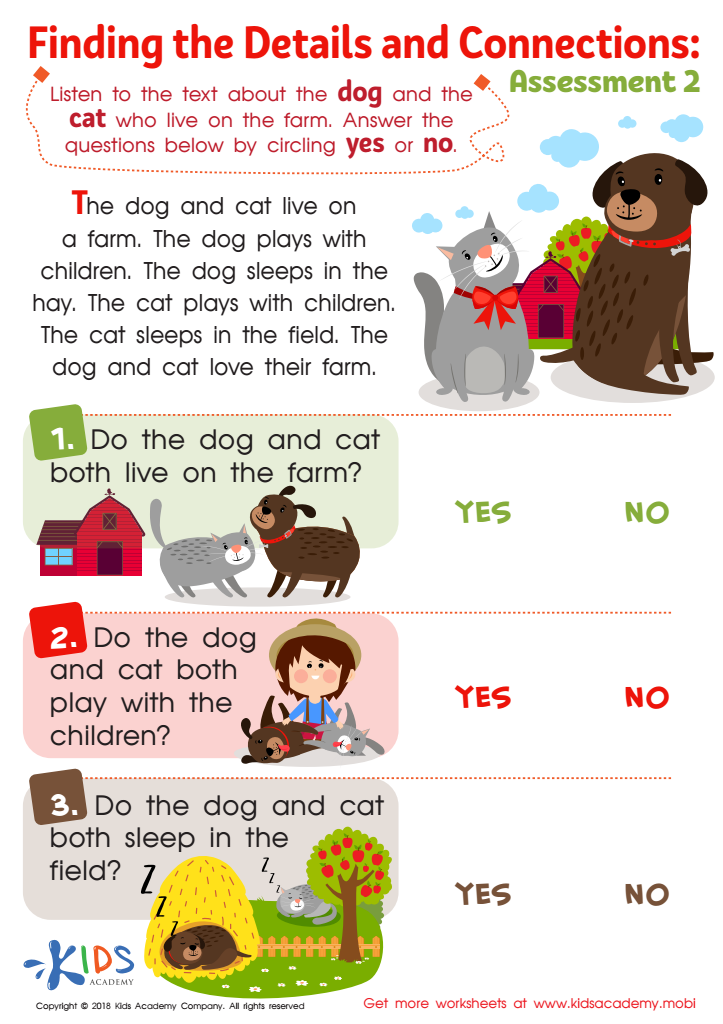

Finding the Details and Connections: Assessment 2 Worksheet
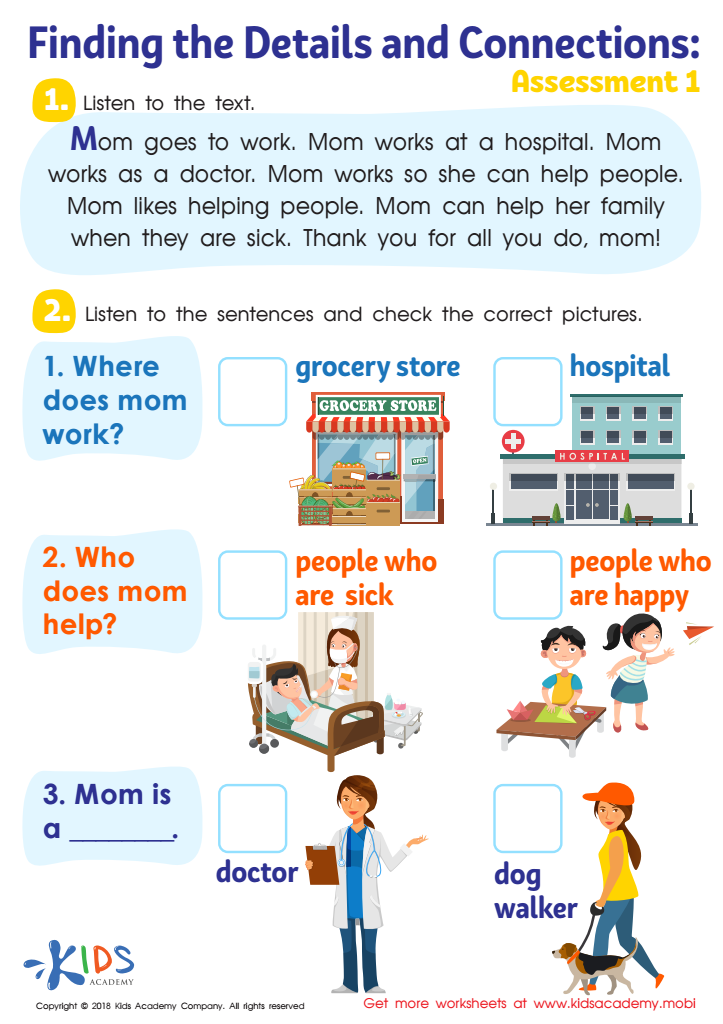

Finding the Details and Connections: Assessment 1 Worksheet


Ecosystems: Assessment 2 Worksheet


Ecosystems: Assessment 1 Worksheet
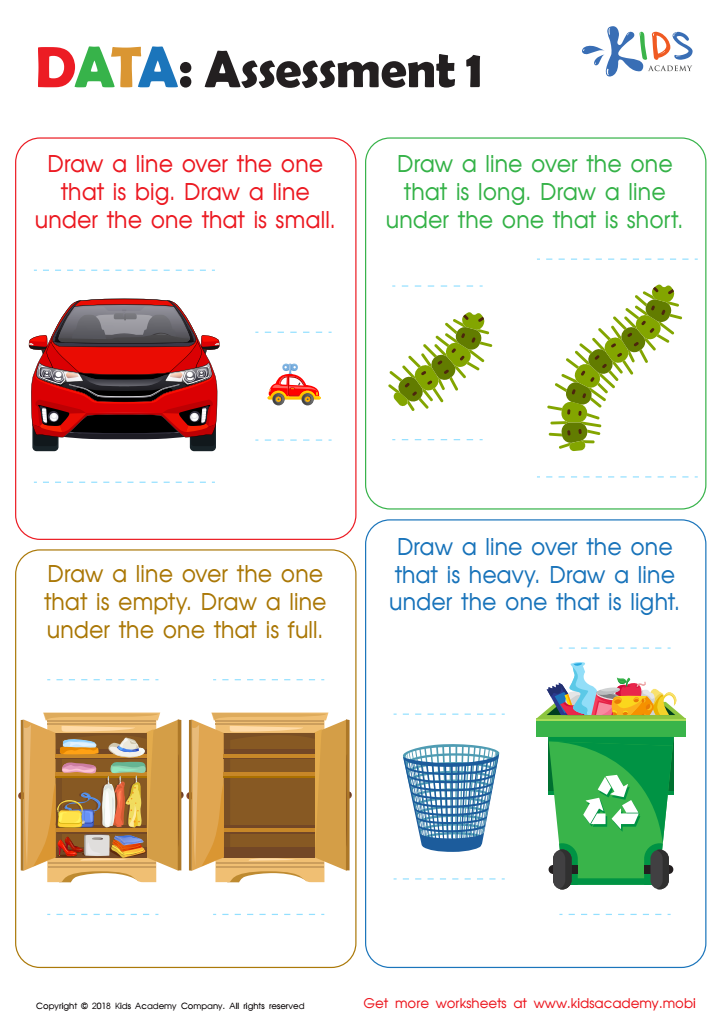

Data: Assessment 1 Worksheet
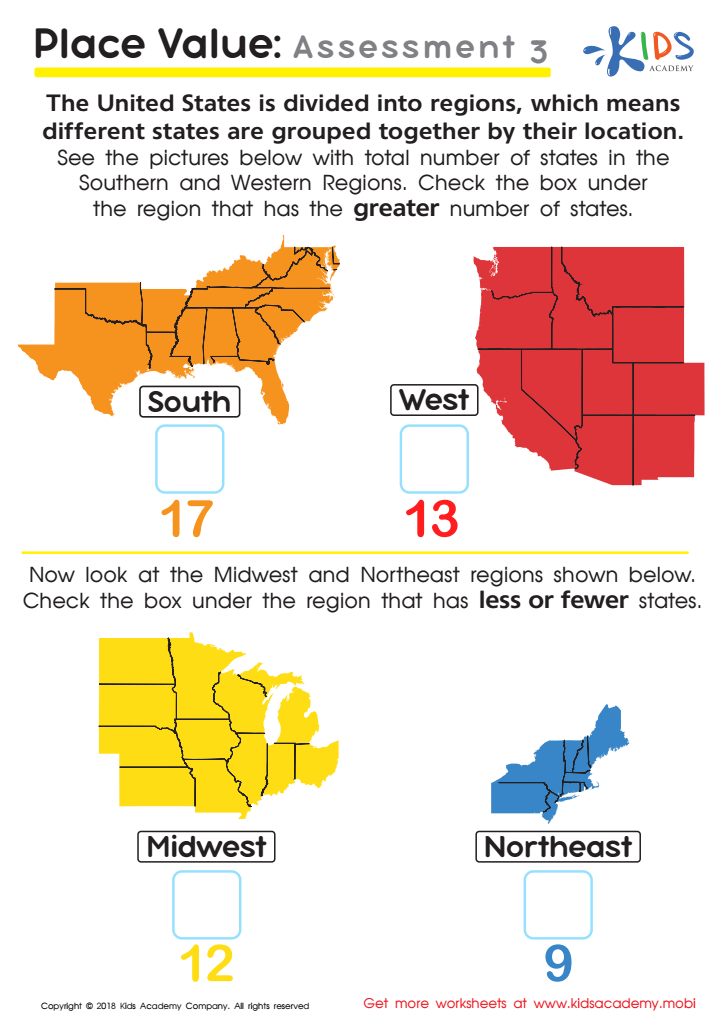

Place Value: Assessment 3 Worksheet


Space: Assessment 2 Worksheet
Normal Knowledge Check activities are essential for children aged 4-7 because they play a crucial role in early childhood development. At this age, children are rapidly acquiring new skills and information, and these activities help assess their understanding of key concepts. Parents and teachers should care about these checks for several reasons.
Firstly, they provide insight into a child's cognitive and emotional development, allowing adults to identify areas of strength and weakness. Early intervention can then be implemented to address any gaps, ensuring children are on track for future learning.
Secondly, Normal Knowledge Check activities are designed to be engaging and interactive, making learning enjoyable. This positive association with learning fosters a lifelong love for education and curiosity about the world.
Finally, these activities encourage communication between parents, teachers, and children. Discussing results can enhance parental involvement in education and foster collaborative strategies tailored to each child's needs.
Investing attention and resources into Normal Knowledge Check activities benefits children's educational journeys, promoting holistic development and laying a solid foundation for future academic success. In short, these checks not only monitor progress but also empower children to thrive in their learning environments.

 Assign to My Students
Assign to My Students





